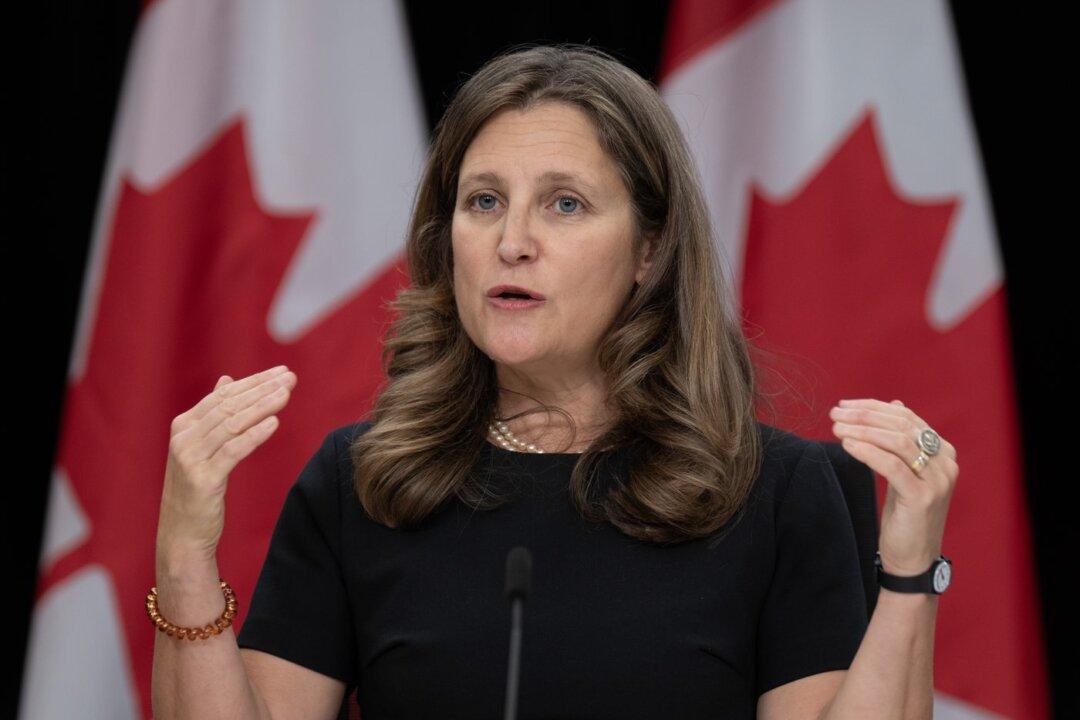Following a meeting with provincial and territorial finance ministers on the potential for Alberta to leave the Canada Pension Plan (CPP), Finance Minister Chrystia Freeland said she will ask the federal government’s chief actuary to put together an estimate on the cost of asset transfers in such a scenario.
“I told ministers today that I would ask the chief actuary to provide an estimate of the asset transfers, based on a reasonable interpretation of the provisions in the CPP legislation. Our officials will work together to define the precise taskings for this work,” Ms. Freeland told reporters on Nov. 3.





